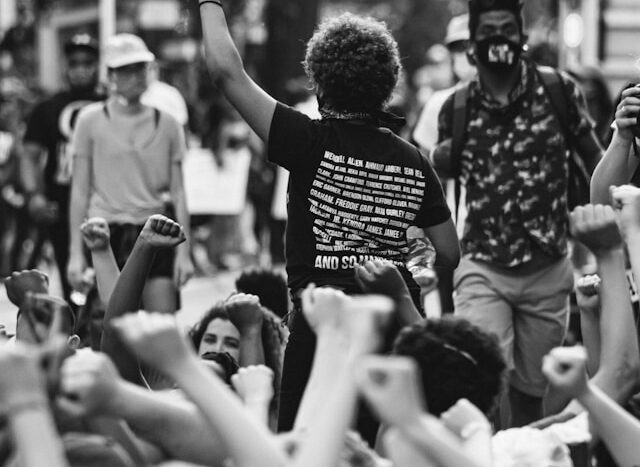Widespread demonstrations on American campuses are intensifying, raising issues of safety and sparking significant political and social debate
Recent weeks have seen a surge of protests across prestigious U.S. universities, fueled by the ongoing conflict in Gaza. Students, expressing solidarity with Palestinians, have occupied campus quads and disrupted academic routines, leading to a heated national conversation on free speech and campus safety.
At Columbia University, the epicenter of these demonstrations, protest organizers are demanding that the institution divest from companies they accuse of benefiting from what they describe as “Israeli apartheid, genocide, and occupation in Palestine.” This strong stance has prompted a variety of responses, ranging from support to severe criticism concerning the rise of campus tensions and accusations of anti-Semitic behavior.
Embed from Getty ImagesBen Chang, Columbia’s Vice President of Public Affairs, emphasized the university’s commitment to ensuring safety without infringing on the right to protest. “Students have the right to protest, but they are not allowed to disrupt campus life or harass and intimidate,” Chang stated, reflecting the university’s delicate position amidst growing unrest.
The situation at Columbia has also seen counterpoints from Jewish students within the protest, who argue that their anti-Zionist stance is not inherently anti-Semitic. Sarah Borus, a Jewish student from Barnard College, expressed frustration at being misrepresented by political and educational leaders. “My college administration, my representatives in Congress, and my own president have continually acted as spokespeople for the Jewish community, equating anti-Zionism with anti-Semitism,” Borus reported at a recent news conference.
The protests have not been without opposition. Nick Baum, another Jewish student at Columbia, voiced concerns about his safety, indicating that the atmosphere on campus has grown increasingly hostile. “I have felt downright unsafe on campus in recent days,” Baum said, describing the environment as reaching a “boiling point.”
The response to the protests has extended beyond campus boundaries. At New York University, tensions escalated further with the arrest of 133 people following breaches of protest barriers, as reported by the New York Police Department. The university cited “disorderly, disruptive, and antagonizing behavior” as key reasons for police intervention.
Across the country, at California State Polytechnic University, similar demonstrations led to the temporary closure of the institution, highlighting the national scale of the issue.
The U.S. government has also weighed in on the matter. U.S. Secretary of Education Miguel Cardona denounced anti-Semitic incidents on campuses, stating on social media, “Anti-Semitic hate on college campuses is unacceptable.” His statement underscores the broader implications of the protests, touching on issues of hate speech and the right to safe educational environments.
As these university protests gain momentum and media attention, they underscore a complex interplay of educational policies, student activism, and national politics, all set against the backdrop of the broader Israel-Palestine conflict. The outcomes of these demonstrations could influence university policies and national discourse on freedom of speech and the ethical responsibilities of academic institutions
